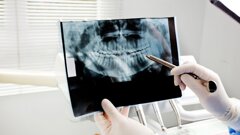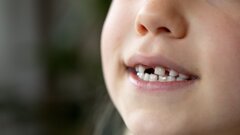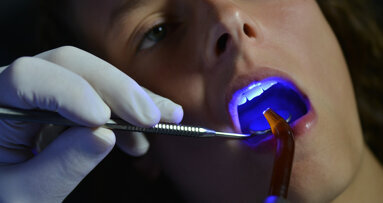NEW DELHI, India: While the effects of climate change on general health are well documented, its impact on oral health remains less explored. A new scoping review has assessed how environmental changes influence dental practices and oral health outcomes. The study suggests that climate change contributes to conditions such as dental caries, erosion and periodontal disease, as well as affects access to dental services. Addressing these challenges requires ongoing research, targeted intervention strategies and a critical review of current policies at the intersection of climate change and oral health, the authors said.
Climate change poses a growing threat to global health. According to the Global Risks Report 2024 published by the World Economic Forum, these impacts are expected to intensify over the next decade. Beyond its direct effects on oral health, climate change may hinder access to dental care owing to financial and logistical disruptions caused by climate-related events.
In their study, the authors reviewed the literature on the impact of climate change on oral health and the dental profession. Ten papers published between 2010 and 2024 were included in the final analysis: four review papers, three editorials, two commentaries and one qualitative study.
The review identified both direct and indirect links between climate change and a wide range of oral health conditions, including caries, erosion, oral cancer, developmental defects of enamel, periodontal disease, dental trauma, and skeletal and dental fluorosis. These associations highlight the serious and wide-reaching potential effects of climate change on oral health.
The review found that extreme weather events can restrict access to dental care, increase oral injuries and heighten the risk of infections and disease owing to poor hygiene and water contamination. It also reported a study that cited higher oral cancer risk owing to increased solar radiation.
Besides these direct effects, the review found that climate change can influence oral health through socio-economic pathways. Poor diet and nutrition—often resulting from climate-related food insecurity—can negatively affect oral health. Furthermore, the impacts of climate change can give rise to stress and mental health challenges, and these in turn may lead to poorer oral hygiene and increased bruxism. The review also noted that climate change exacerbates health inequalities, disproportionately affecting vulnerable populations, particularly low-income, remote and indigenous communities that already experience limited access to dental care and greater oral health disparities.
Sustainable strategies for resilient oral health
The review emphasised the broader impact of climate change on healthcare delivery. For example, it was noted that extreme weather events can disrupt supply chains and transportation systems, leading to shortages of resources and rising costs in dentistry.
In response to these challenges, the authors advocated for more sustainable practices within the dental profession, such as choosing environmentally responsible suppliers and products. They also recommended adopting a circular economy approach to minimise waste and promote sustainability.
The review concluded that dental public health systems must be better equipped to manage the impacts of climate-related events by ensuring continuity of care during emergencies and strengthening community-based oral health programmes. Key recommendations in this regard include expanding the use of teledentistry, enhancing financial resilience planning and improving medication storage to prevent degradation during climate-related events, thereby reducing the risk of ineffective treatment and unnecessary antibiotic prescribing.
Overall, the findings underscore the urgent need for proactive, evidence-based action to ensure that dental care systems remain accessible, resilient and equitable in the face of a changing climate. To that end, the authors also called for increased research funding to deepen understanding of the impact of climate change on oral health and to develop effective long-term strategies.
The study, titled “Impact of climate change on dentistry and oral health: A scoping review”, was published online on 31 March 2025 in BDJ Open.
Topics:
Tags:
PARIS, France: A new report on the state of healthcare in the EU has found that workforce shortages and an ageing population are contributing to a ...
MONTREAL, Canada: As the world increasingly comes to terms with the immense impact produced upon the environment by industrial capitalist societies, the ...
With less than 30 days until candidates Donald Trump and Kamala Harris face off to become the 47th US president, there is a sense that the country, and ...
LEEDS, England: Dentistry is a significant contributor to carbon emissions, and in the UK, dental services provided through the National Health Service ...
Procurement, waste generation and water management are three major categories where dental practices could potentially become more sustainable. This is in ...
Live webinar
Wed. 4 March 2026
6:30 am IST (New Delhi)
Dr. Vasiliki Maseli DDS, MS, EdM
Live webinar
Wed. 4 March 2026
10:30 pm IST (New Delhi)
Munther Sulieman LDS RCS (Eng) BDS (Lond) MSc PhD
Live webinar
Wed. 4 March 2026
11:30 pm IST (New Delhi)
Live webinar
Thu. 5 March 2026
7:00 am IST (New Delhi)
Lancette VanGuilder BS, RDH, PHEDH, CEAS, FADHA
Live webinar
Fri. 6 March 2026
1:30 pm IST (New Delhi)
Live webinar
Tue. 10 March 2026
1:30 pm IST (New Delhi)
Assoc. Prof. Aaron Davis, Prof. Sarah Baker
Live webinar
Wed. 11 March 2026
5:30 am IST (New Delhi)
Dr. Vasiliki Maseli DDS, MS, EdM



 Austria / Österreich
Austria / Österreich
 Bosnia and Herzegovina / Босна и Херцеговина
Bosnia and Herzegovina / Босна и Херцеговина
 Bulgaria / България
Bulgaria / България
 Croatia / Hrvatska
Croatia / Hrvatska
 Czech Republic & Slovakia / Česká republika & Slovensko
Czech Republic & Slovakia / Česká republika & Slovensko
 France / France
France / France
 Germany / Deutschland
Germany / Deutschland
 Greece / ΕΛΛΑΔΑ
Greece / ΕΛΛΑΔΑ
 Hungary / Hungary
Hungary / Hungary
 Italy / Italia
Italy / Italia
 Netherlands / Nederland
Netherlands / Nederland
 Nordic / Nordic
Nordic / Nordic
 Poland / Polska
Poland / Polska
 Portugal / Portugal
Portugal / Portugal
 Romania & Moldova / România & Moldova
Romania & Moldova / România & Moldova
 Slovenia / Slovenija
Slovenia / Slovenija
 Serbia & Montenegro / Србија и Црна Гора
Serbia & Montenegro / Србија и Црна Гора
 Spain / España
Spain / España
 Switzerland / Schweiz
Switzerland / Schweiz
 Turkey / Türkiye
Turkey / Türkiye
 UK & Ireland / UK & Ireland
UK & Ireland / UK & Ireland
 International / International
International / International
 Brazil / Brasil
Brazil / Brasil
 Canada / Canada
Canada / Canada
 Latin America / Latinoamérica
Latin America / Latinoamérica
 USA / USA
USA / USA
 China / 中国
China / 中国
 Pakistan / Pākistān
Pakistan / Pākistān
 Vietnam / Việt Nam
Vietnam / Việt Nam
 ASEAN / ASEAN
ASEAN / ASEAN
 Israel / מְדִינַת יִשְׂרָאֵל
Israel / מְדִינַת יִשְׂרָאֵל
 Algeria, Morocco & Tunisia / الجزائر والمغرب وتونس
Algeria, Morocco & Tunisia / الجزائر والمغرب وتونس
 Middle East / Middle East
Middle East / Middle East


















































To post a reply please login or register